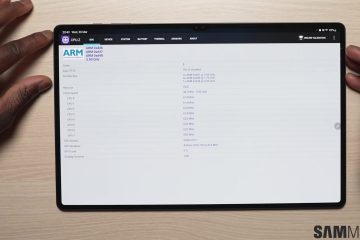Bitdefender Antivirus Plus e Kaspersky Anti-Virus sono due dei nostri programmi antivirus meglio recensiti, ma come si fa si accumulano in una battaglia testa a testa per la supremazia?
Per scoprirlo, abbiamo confrontato la capacità di ogni programma di catturare il malware, studiando anche i loro set di funzionalità e testando il loro impatto sulle prestazioni su un computer sistema. Inoltre, abbiamo esaminato seriamente le loro interfacce utente.

Bitdefender Antivirus Plus
Bitdefender Antivirus Plus ha un’interfaccia utente intuitiva e molte funzionalità extra, come un gestore di password, un file shredder e un browser sicuro.

Kaspersky Anti-Virus
Kaspersky Anti-Virus ha un piccolo vantaggio nel rilevamento del malware e un impatto sul sistema più leggero rispetto a Bitdefender, ma un’interfaccia più ingombrante e meno funzioni e strumenti utili.
Dopo più round di confronto, Bitdefender Antivirus Plus (a partire da $ 19,99 per un PC) ottiene una vittoria, grazie alla sua ricchezza di funzioni e caratteristiche utili e alla sua interfaccia facile da usare. Kaspersky Anti-Virus (a partire da $ 39,99 per tre PC) ha un leggero vantaggio nel rilevamento del malware e un impatto sul sistema più leggero. A misurare la capacità di ciascuno di questi programmi di rilevare malware, abbiamo utilizzato i risultati di due laboratori di test sui prodotti indipendenti, AV-TEST in Germania e AV-Comparatives in Austria. Queste aziende testano i prodotti di circa 20 marchi leader di antivirus lanciando uno tsunami di malware sui sistemi informatici, quindi misurando quanti file vengono catturati e quanti non vengono rilevati. Quasi ogni mese , AV-Comparatives espone i computer che eseguono Windows 10 a 64 bit al malware online più recente in quelli che il laboratorio chiama i suoi test di protezione”reali”contro il malware online più recente. AV-TEST utilizza due benchmark: attacca i sistemi con il nuovissimo malware”zero-day” che non è stato visto prima (per il quale sono necessarie funzionalità di rilevamento avanzate ), ma sottopone anche i computer a malware”diffuso”che è stato scoperto e identificato nelle quattro settimane precedenti (che può essere individuato abbinando le”firme”di malware note). Le valutazioni di AV-TEST durano due mesi ciascuna e utilizzano Windows 10 a 64 bit. I prodotti Bitdefender e Kaspersky Lab testati da entrambi i laboratori non erano esattamente quelli che stiamo confrontando qui. Invece, erano le suite”intermedie”, Bitdefender Internet Security e Kaspersky Internet Security, che offrono molte più funzionalità rispetto alle loro controparti più economiche. Ma poiché ogni marchio utilizza un”motore”di rilevamento malware per tutti i suoi prodotti Windows, i risultati della protezione dovrebbero essere gli stessi su una linea di prodotti. Bitdefender ha ottenuto quattro tassi di rilevamento impeccabili del 100% in Valutazioni di Windows 10 di gennaio e febbraio 2021 di AV-TEST contro il malware zero-day e diffuso. Kaspersky ha fatto lo stesso. L’unica differenza era che Bitdefender registrava un singolo falso positivo -un elemento benigno erroneamente etichettato come malware-mentre Kaspersky non ne aveva nessuno. I tassi di rilevamento erano gli stessi nei due round precedenti delle valutazioni AV-TEST, a novembre/dicembre e settembre/ottobre 2020: tassi di rilevamento del 100% su tutta la linea. Le differenze, ancora una volta, erano nei tassi di falsi positivi: Bitdefender ne ha collezionati 12 a novembre/dicembre e otto a settembre/ottobre. Kaspersky ne ha registrato solo uno nel primo e zero nel secondo. Tutto questo indica che il motore di rilevamento malware di Kaspersky è”ottimizzato”meglio di Bitdefender e ha una percezione più acuta di quando qualcosa è dannoso rispetto a quando non lo è. (Non è sempre facile da dire.) Il motore di rilevamento di Bitdefender sembra compensare eccessivamente per assicurarsi di non perdere alcun malware. La differenza era meno pronunciata in I test di AV-Comparatives, in cui i due erano abbinati in modo più uniforme. Nei test di febbraio-marzo 2021, Bitdefender ha rilevato il 99,7% del malware e rilevato quattro falsi positivi, mentre Kaspersky ha rilevato il 99,2% per cento e ha sollevato zero falsi flag. Nel precedente ciclo di test AV-Comparative, da luglio a ottobre 2020, Bitdefender ha rilevato una media del 99,6% di malware con quattro falsi positivi, mentre Kaspersky ha avuto un tasso di rilevamento del 99,7% con due falsi positivi. Nonostante questo risultato confuso, dobbiamo ancora dare questo round a Kaspersky sulla base dei risultati di AV-TEST. Vincitore: Kaspersky Anti-Virus. Bitdefender è buono, ma Kaspersky è migliore. Bitdefender Antivirus Plus e Kaspersky Anti-Virus condividono processi di installazione simili, ma differiscono nel design dell’interfaccia. Se scarichi il software e paghi online con una carta di credito, uno dei due ti iscriverà per il rinnovo automatico, addebitando nuovamente la tua carta alla scadenza dell’abbonamento a pagamento. Questa funzione è comoda o fastidiosa, a seconda della prospettiva, ma può essere disabilitata dopo l’installazione. Il processo di installazione di ogni suite richiede circa 5 a 6 minuti ed è distribuito su due sezioni. Bitdefender crea anche una partizione nascosta sull’unità C chiamata Rescue Environment che può riavviare l’hardware in una nuova build di Windows 10 e pulire i computer gravemente infetti. Kaspersky offre un disco di ripristino che si avvia in Linux per fare la stessa cosa: può essere scaricato e masterizzato su dischi ottici o installato su unità USB. Entrambi i programmi offrono aggiornamenti di stato sulle schermate iniziali, inclusa la possibilità di avviare immediatamente le scansioni manualmente. (Potrebbe non essere necessario perché entrambi i programmi monitorano tutte le attività di sistema in background.) Bitdefender inserisce anche un pratico widget di stato in basso a destra sul desktop che può essere sempre eseguito. Se l’ambiente di salvataggio e il widget di stato non sono stati sufficienti per dare a Bitdefender un vantaggio, il layout più opaco e un po’disallineato di Kaspersky lo condanna. Gli schermi Kaspersky hanno un aspetto migliore rispetto a qualche anno fa, ma hanno molto spazio bianco che spreca immobili. Bitdefender Antivirus ha un layout ben composto che mette più controlli davanti all’utente. Vincitore: Bitdefender Antivirus Plus. Sembra più amichevole ed è più facile da usare. Abbiamo misurato l’impatto che Bitdefender e Kaspersky hanno avuto sul nostro laptop misurando la velocità con cui è terminato il nostro test benchmark Excel, sia dopo l’installazione di ogni programma che durante le scansioni attive. Il test di Excel verifica la velocità con cui un sistema può abbinare 20.000 nomi a 20.000 indirizzi su un foglio di calcolo. Dopo l’installazione, ma prima dell’avvio di qualsiasi scansione attiva, Bitdefender Total Security, il fratello potenziato di Bitdefender Antivirus Plus , ha rallentato il nostro laptop di prova (un laptop Lenovo ThinkPad T470 con processore Core i5-7200U da 2,5 GHz, 8 GB di RAM e 256 GB di memoria a stato solido contenente 61,2 GB di file) del 19%, una quantità piuttosto significativa. Al contrario, Kaspersky Total Security ha rallentato le cose solo del 12% circa. The results of the active scans followed the same pattern. During a Bitdefender full scan, the Excel test finished its process in 13.8 seconds, a 32.7% percent slowdown from the pre-installation baseline of 10.4 seconds. During Kaspersky’s full scan, our benchmark finished in 12.9 seconds, nearly a second ahead of the Bitdefender test and a 26.5% slowdown from the pre-installation baseline of 10.2 seconds. Kaspersky scored another win with its quick scan, during which the Excel test finished in 12.4 seconds, or 21.6% slower than the baseline. During the Bitdefender full scans, the Excel test finished in 13.6 seconds, 30.8% slower than the baseline. Winner: Kaspersky Anti-Virus. Kaspersky clearly has the lighter touch. Bitdefender Antivirus Plus and Kaspersky Anti-Virus each offer plenty of security features. One of the most important is a dedicated defense against ransomware, and both products take steps to immediately make copies of files under attack so that they can be restored if the originals are encrypted. Bitdefender Antivirus Plus and Kaspersky Anti-Virus share several useful featur es, including a network scanner to detect potentially malicious devices, automatic blocking of links to known phishing websites and an onscreen keyboard on which you tap out”keys”with your mouse to foil keylogging malware. While Kaspersky’s virtual keyboard stands alone, Bitdefender’s is part of its Safepay secure browser, which protects users by limiting extensions and disabling screenshots while visiting online banking and shopping sites. You won’t get a similar secure browser in Kaspersky Anti-Virus; you’d have to upgrade to Kaspersky Internet Security. Kaspersky Anti-Virus’unique feature is that it monitors your PC for the presence of”stalkerware,”spyware that’s often used by jealous spouses or snooping employers to keep tabs on you. On the other hand, Bitdefender Antivirus Plus checks your system for necessary updates and outdated software, blocks online trackers in web browsers and gauges the security of the Wi-Fi networks you connect to. Winner: Bitdefender Antivirus Plus. It’s simply got more useful security features. Each of these antivirus solutions offer features that may not protect you, but are handy. Both Bitdefender Antivirus Plus and Kaspersky Anti-Virus offer a”game mode”so you can play a game or watch a movie without the program interrupting your activity. Bitdefender Antivirus Plus also gives users a file shredder for the secure del etion of sensitive material, and an unlimited password manager that allows you to create and manage complex, hard-to-crack passwords. The Bitdefender p assword manager has one big catch: It runs only on Windows. Bitdefender has said the password manager may be ported to iOS and Android, but has ruled out a Mac version. Meanwhile, the password manager on Kaspersky Anti-Virus is limited to only 15 sets of usernames and passwords. It’s a teaser for the full stand-alone Kaspersky password manager, which costs $15 per year yet may be worth it. Most of the best password managers cost twice as much, and Kaspersky’s runs on Windows, Macs, iOS and Android alike. Bitdefender’s Wi-Fi scanner, mentioned in the previous section, is also an enticement to get you to use Bitdefender’s VPN service. You get 200MB of daily VPN data to use for free with Bitdefender Antivirus Plus, after which you have to pay $40 per year. Kaspersky Anti-Virus counters this with 300MB of its own free VPN data daily, and its unlimited service costs only $30 per year. (Both Bitdefender and Kaspersky’s VPNs are cheap compared to most of the best-known VPN services.) Overall, Bitdefender Antivirus Plus offers a bigger set of features than Kaspersky Anti-Virus right out of the box, even if Kaspersky’s products are a bit better once you’ve paid extra. Winner: Bitdefender Antivirus Plus. Having a built-in file shredder and unlimited password manager give it the edge. While Kaspersky Anti-Virus has a slight edge on malware detection and a somewhat larger advantage on system impact, those are outweighed by Bitdefender Antivirus Plus’overall user-friendliness. Not only does Bitdefender Antivirus Plus give you more bang for the buck with a solid set of extra security functions and useful tools, but it’s got a more intuitive, accessible interface. Rilevamento del malware


Facilità d’uso e di installazione



Impatto sulle prestazioni del sistema

Security features





Bitdefender Antivirus Plus
Kaspersky Anti-Virus
Malware detection
X
Ease of use, installation and layout
X
System performance impact
X
Extra security features
X
Extra non-security features
X
Winner
X
Bottom line


